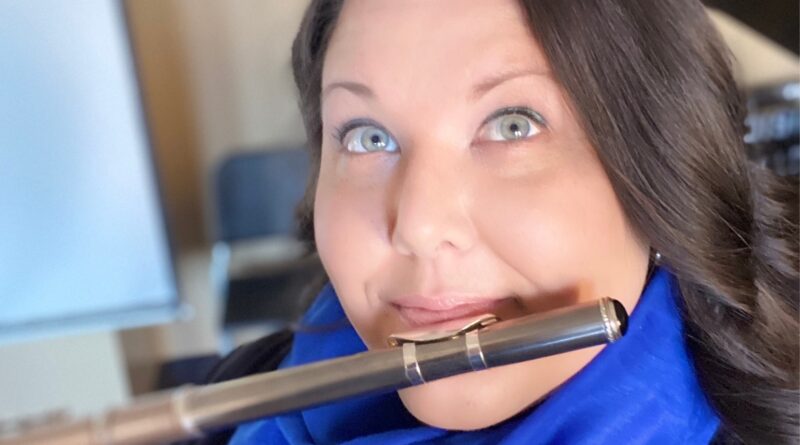On Practicing Slow
by Dr. Terri Sánchez
I am one of the most patient impatient people on earth. I think a lot of flutists are. We want to sound accurate, beautiful, amazing and impressive. Right now! Fortunately, some of us are lucky enough to know that the fastest way to get where we want to go with our flutes is as slowly as possible. This essay is for those poor, unfortunate souls that haven’t figured it out … yet.
Let’s start with the basics. To play fast or pretty or both, we need muscle memory. We need it for our fingers, our lips, the muscles involved with breathing, even our eyeballs as we read the music! Since all muscle memory is in the brain, it’s good to know how muscle memory gets wired. When we practice something many times with mindful repetitions (notice I did not say “randomly flailing about attempting to fix things”), the myelin sheath that insulates our neural connections thickens. The thicker the myelin, the faster the connection.
The amazing thing about thickening the myelin sheath and quickening our mind and muscle response times is that we can thicken and quicken as much as we want. For free! In other words, ten mindful repetitions equals a certain level of speed, but a hundred mindful repetitions equals ten times that speed. A thousand mindful repetitions equals one hundred times that speed. So what’s the problem then? Why aren’t all flutists playing Ibert Concerto at the speed of light like the true virtuosos they are capable of being? Because repetition feels hard to do. It’s not, but it feels that way.
Why is repetition so challenging? Because of all the extra junk that gets twisted up in our minds with the idea of repetitive practice. I passionately believe that when we program our muscle memory, we not only program in finger transitions, rhythm recognition and other technical elements of music making, but also the mental and emotional state we were in as we practiced. This means that three patient repetitions plus seven frustrated, slightly more random ones are only 30% as effective as ten high-quality repetitions. If you consider the negative ripple effects feeling frustrated has on your mind and body in general, it’s probably much less than that.
Here are seven reasons I have noticed that some flutists have little to no tolerance for slow, patient, mindful repetitions:
- Time Scarcity - “I’m so busy, I don’t have time for this.”
- The Shoulda Coulda Wouldas - “I should already be better at this.”
- Self-Critique or Self-Doubt - “I hate hearing all the flaws in my playing.”
- Outside Stresses - “When I slow down this much, I notice how anxious I really am.”
- Fatigue - “It’s been such a long day/week/month. I’m exhausted.”
- Instant Gratification Syndrome - “Why is this taking so long?”
- Lack of Experience - “I didn’t know advanced musicians did that many repetitions.”
Here are 7 “Slow Practice Paradigm Shifts” I recommend!
- Indulgently Slow Practice - “I love how the slower I go, the faster I learn.”
- Acceptance - “I love knowing that where I am now is the perfect place to be.”
- Vulnerability - “I am brave enough to face the flaws in my playing and gently improve.”
- Presence - “It is wonderful to slow down and feel my feelings as I practice.”
- Relaxation - “Practicing is a wonderful oasis in the middle of my busy life.”
- Personal Investment - “It feels great working toward something meaningful.”
- Appreciation - “I love that I can program in as much muscle memory as I want!”
At first, it may seem strange to switch to this counterintuitive way of thinking, but as those of us who already know the power of slow practice will tell you, it is more than worth it.
Looking for a tool to help you practice slowly and stay motivated? Check out www.practicejunkie.com for a free, printable Tempo Chart PDF that encourages you to take your time and engage with mindful repetitions.
Interested in studying with Dr. Terri Sánchez at the Bowling Green State University College of Musical Arts? Email her at tersanc@bgsu.edu to find out more.
